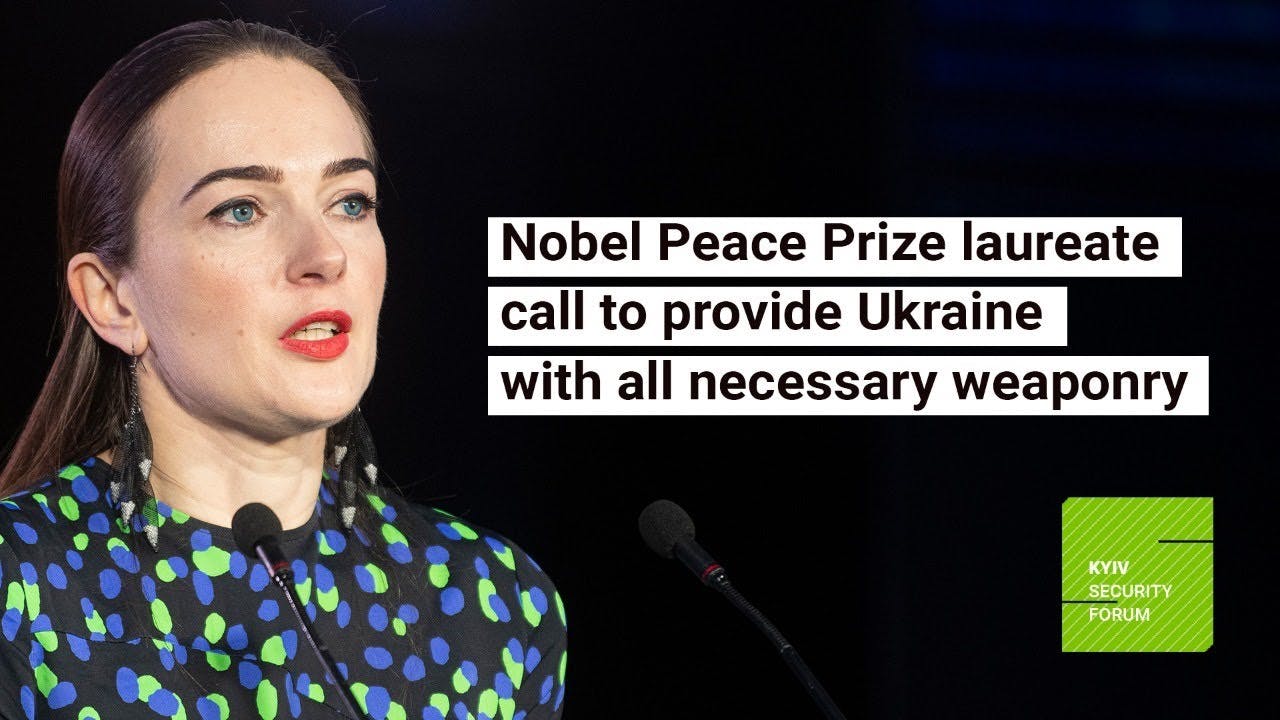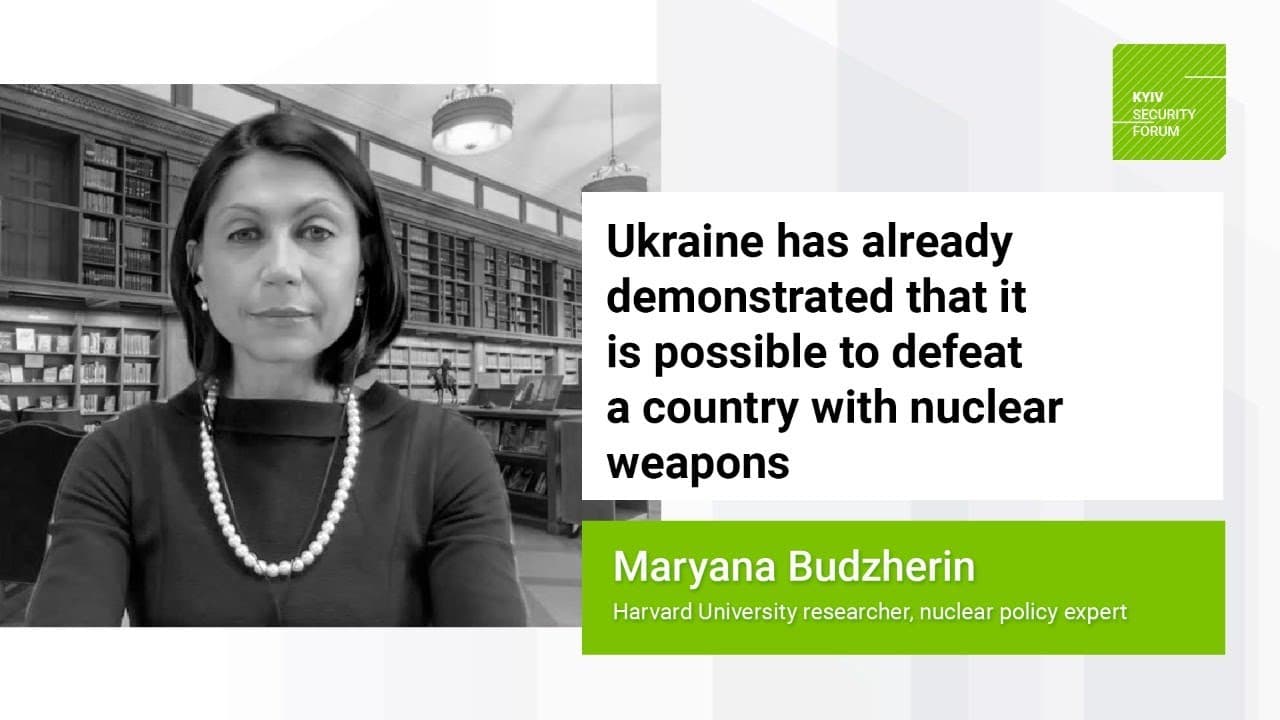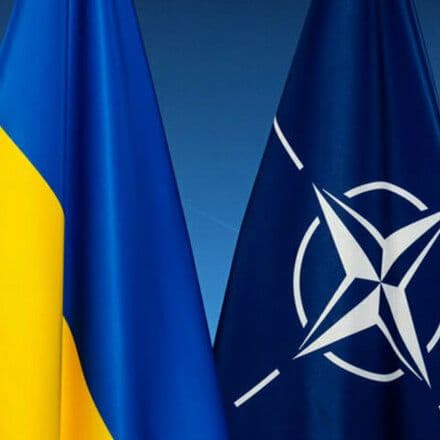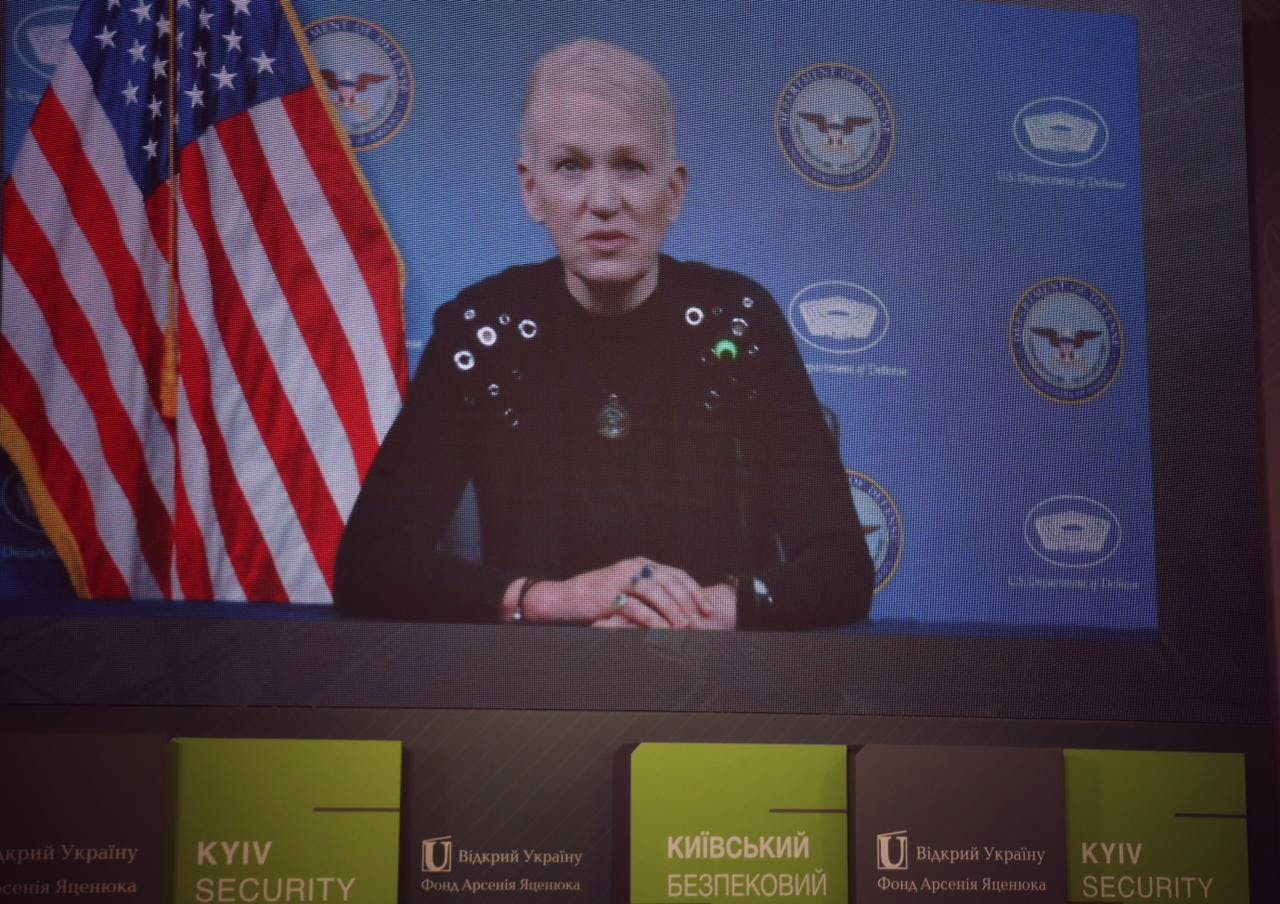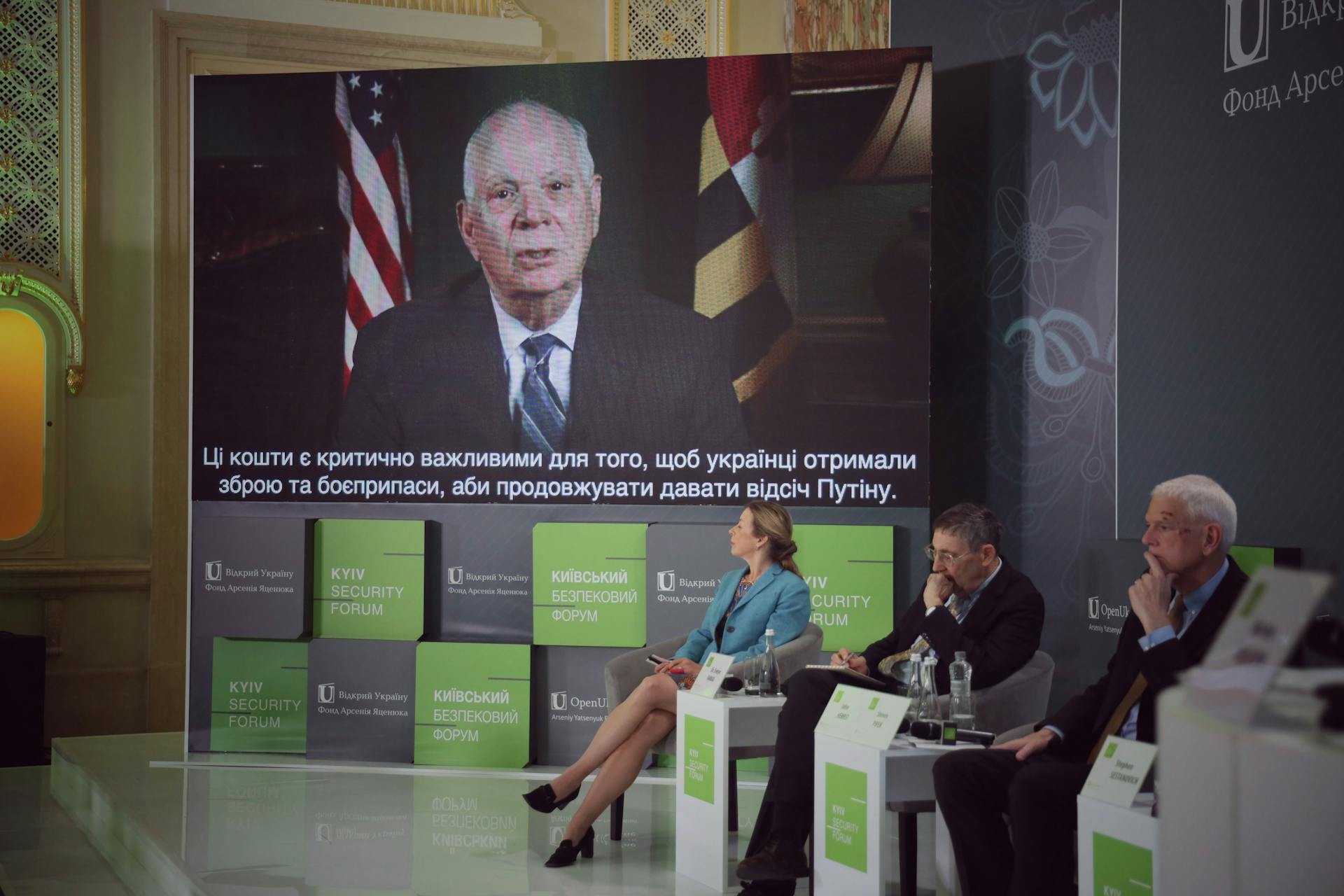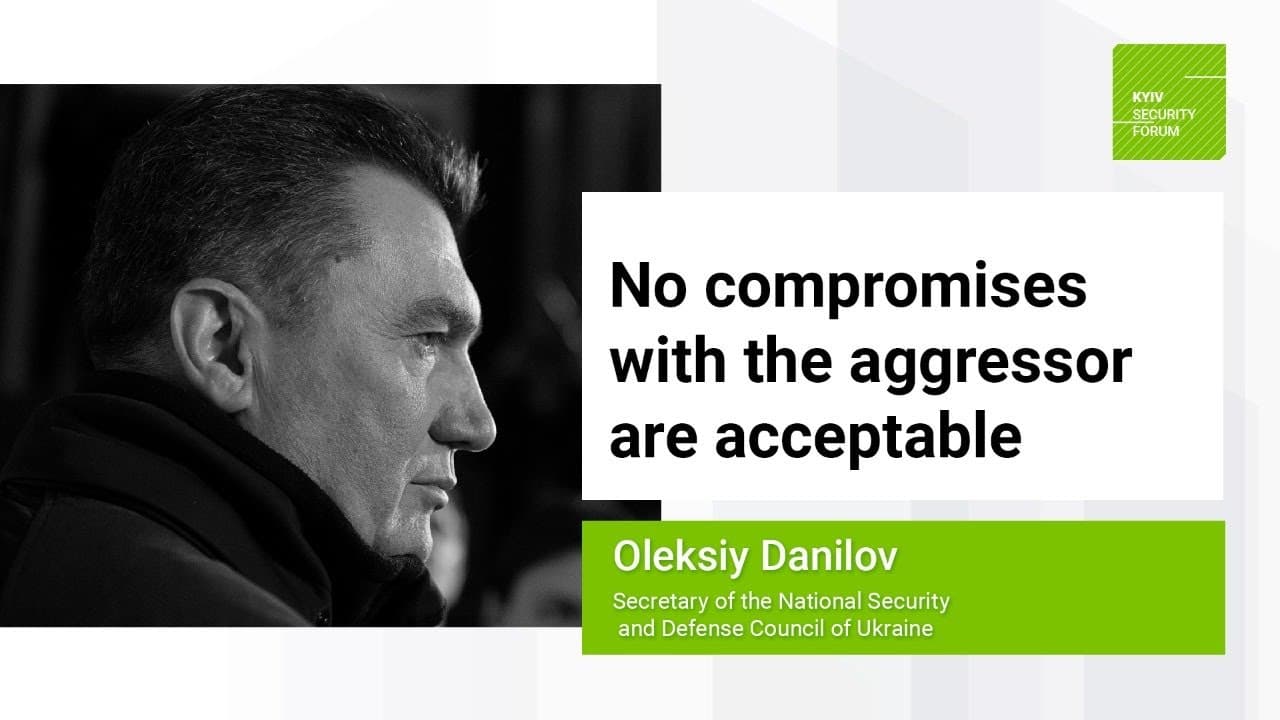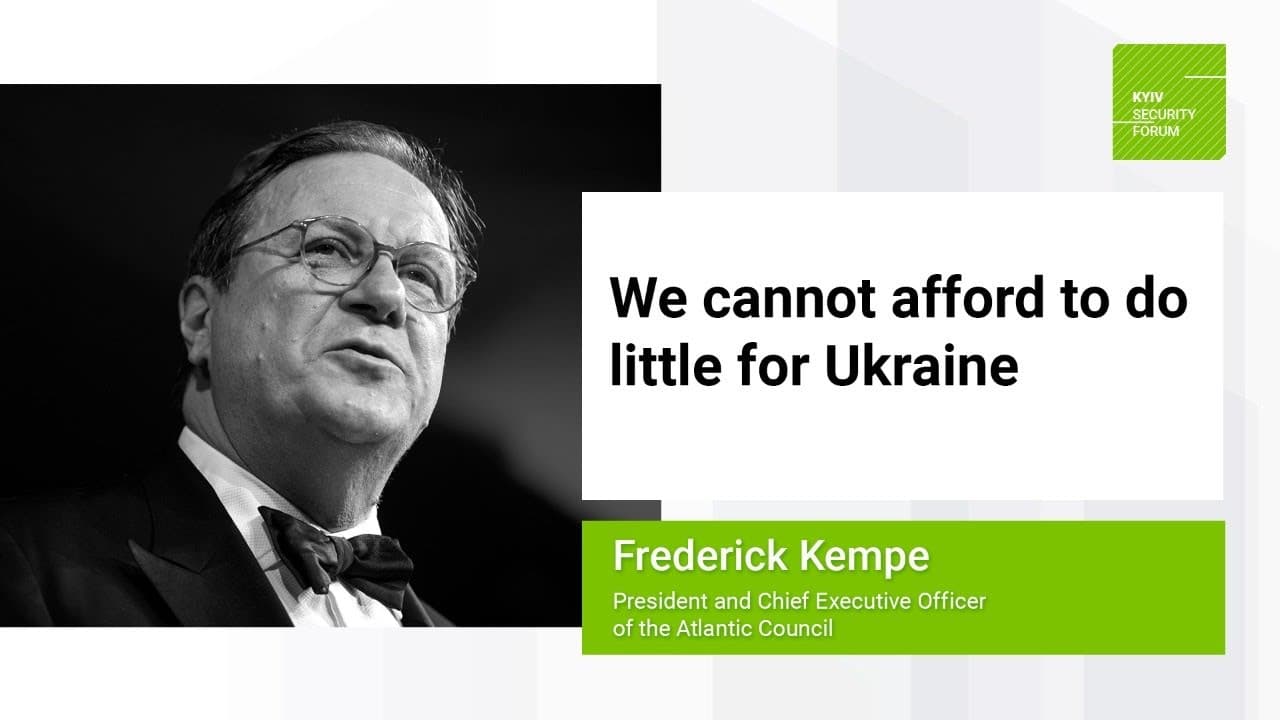On Security
By Danylo Lubkivsky,
Director of the Kyiv Security Forum
Ukrainian Catholic University, 3 February 2023
Dear colleagues,
Ladies and Gentlemen,
It’s an honor to address your important gathering, co-sponsored by the Ukrainian Catholic University together with the Syracuse University and the University of Bialystok.
I was invited to speak about the major elements of our security discourse. Let me share some thoughts from the Ukrainian perspective.
As we approach the first anniversary of full-scale Russia’s invasion of Ukraine, it is crucial for our common understanding to start with the notion that Russia’s unprovoked war of aggression against Ukraine has been waged for almost nine years already.
The war began on the 20th of February, 2014 with the Russian troops occupying Crimea and - sometime later - swaths of Donetsk and Luhansk regions.
The 24th of February, 2022 was an evil day of a massive attack on Ukraine – the very escalation moment that Moscow had been approaching for many years...
In early March 2014, I embraced the position of Ukraine’s Deputy Foreign Minister in the Government appointed after the victory of the Revolution of Dignity.
I remember very well all emotions of those times. The victory of the Revolution of Dignity was achieved through unprecedented sacrifices. Having risen against Yanukovych and his regime at that time it was hardly possible for Ukraine to fully comprehend what it was up against: not just a gang of traitors, corruptionists, and criminals, but the Russian military machine.
Ukraine had not yet mourned all its heroes when it received the first military blow and met with encroachment upon our statehood. Having recovered after the first shock, our Cabinet led by Prime Minister Arseniy Yatsenyuk started devising an urgent backlash response. It was difficult to evaluate the full measure of threats and dangers. Many of our partners could not just believe the reality of war and the mortal danger faced by Ukraine.
However, we all knew very well that we had to act dartingly and there was no time to spare.
Moreover, any prospect of appeasement or compromises with Moscow – a common practice for the post-Soviet vassal authorities - on issues of our sovereignty and security, political, economic, energy independence, and the Euro-Atlantic choice was not acceptable either.
Ukraine found itself robbed and disarmed by Yanukovych.
So the first steps were aimed at political and financial stabilization and ensuring military resistance. From the very early days, Ukrainian diplomacy initiated emergency consultations with our partners, primarily the signatories of the Budapest Memorandum.
We started to form a wide international coalition. This is the way the Geneva talks with Russia - the first international format to deter the aggressor - were launched by the United States, the European Union, and Ukraine. Later - for some reason which is still not very clear and convincing to me - this format was changed into the Normandy talks with Germany and France instead of the United States and the European Union.
Jointly with our American and European partners, we managed to summon the United Nations to approve the first resolution in support of Ukraine. One hundred Member States voted in favor of this historic General Assembly motion on the 27th of March, 2014.
The war started, and the whole world gradually discovered new crushing international realities. I would like to single out two observations from my own personal experience back in 2014-16.
First. Any crime of aggression requires an immediate and massive international response. In such situations, every international delay, disguised as political prudence, inevitably leads to much greater upheavals and numerous casualties.
Second. Clarity of assessment is omni-important: if a state commits aggression, it should be plainly called an aggressor. One should not pander to the aggressor, the latter should not be called a “mediator”, and definitely no “family photos” with the aggressor. Even in case the aggressor possesses nuclear weapons or cheap gas and oil.
To understand how to act today and tomorrow, it is necessary to plunge into the genesis of the Russian aggression and the circumstances that have turned the war into a reality.
Nine years of Russia’s war against Ukraine is a political and international legal fact. A year of full-scale invasion is the escalation peak of Russia’s war of aggression.
Prior to aggression, though, there were years of ramping up lethal jeopardy not solely for Ukraine or the West, but for the entire world order and civilized international rules and principles.
Cynical words of Putin and his henchman Lavrov, who is no less responsible for the war crimes, serve as a telling illustration of this in-depth Russian disdain for international law. These two repeat the following in unison, time and again: “You speak about a rules-based world order? We refuse to recognize these rules.”
What events preceded Russia’s war against Ukraine? It was the silent tolerance of the increasingly aggressive rhetoric of the Russian political elite about their imperialistic ambitions.
It was Putin’s blatant regret about the collapse of the Soviet Union.
It was Russia’s war against Georgia and the occupation of its lands.
It was Russia’s economic and energy blackmail against neighbors and the West.
It was Russia’s political corruption in Europe and palm-greasing with energy resources.
It was the Kremlin’s constant interference in the internal affairs of the vast majority of our countries, including the United States.
In fact, it was undeclared, but the practical and manifest occupation of Belarus and systematic intimidation of all states in the region.
It was a long time ago since Russia diverted from the peace track.
It was for a long time that Russia nurtured its aggressive plans, that the world turned the blind eye to this.
Russia’s aggression is rooted not just in the actions of a certain criminal and militarist group which seized powers in the country. Certainly not. Open opinion polls that have been held in Russia over many years, including by the Levada sociology research center, clearly testify to the vast popular support of Russian dominance and chauvinism.
The opinion polls registered, inter alia, the fact that the core voters group (pensioners, former military and special forces servicemen, public employees, and social benefit recipients) is, in fact, the major customer of political sentiment in Russia.
The said core voters group comprises over 50 million people (this is well beyond the general population number in Ukraine).
The major sentiment of this group is resentment.
The major intention of this group (conscious or not) is to recoup.
These are the people who mourn the Soviet Union.
These are the people, for various reasons, who want to rekindle the imperial feelings despite their own poverty and destitution.
These are the people who are a collective Putin.
They have ordered the aggression.
On the 24th of February, 2022 my wife and I decided to stay in Kyiv. Like thousands of other volunteers, I joined local self-defense. I did not take to arms, but I did what my brothers-in-arms deemed necessary: like many other colleagues of mine, I communicated with the world, our partners, and informed them of the state of affairs in Kyiv and beyond, and called on them to take a pro-active approach.
I take pride in the fact that the Kyiv Security Forum did not leave our capital for a single day.
Why did the Ukrainians take up arms to resist?
Because in their hearts and minds, the Ukrainians have already defeated Russian imperialism.
It was exactly a fortnight before the full-scale invasion that I shared the following ideas with the international audience in my article “Why Putin has already lost (in) Ukraine?”:
“Ukrainians have rejected the “Russian idea” – the revisionist concept that Putin tries to impose on his neighbors… The Kremlin may consider ridiculous plans to install a pro-Russian puppet in Ukraine. But these plans will fail. Putin and his narrow circle do not understand modern Ukraine. We want to be independent, and we want to be part of Europe, not a pawn of Putin”.
I take pride in the colossal counterpunch inflicted on the aggressors by Ukraine.
Still, there is yet another reason for pride and optimism.
Ukraine is grateful to the world, to our allies and partners, and to all people who stand in solidarity with us all over the planet, for their unprecedented support, assistance, and joint efforts.
Never before in our entire history that Ukraine had such powerful and massive support as today.
I perceive a great human truth in this support.
This adds to our faith that we are capable of not only defeating the Russian aggressor but of converting the opportunity to create a safe and just world order.
Putin made a blunder.
He considered Ukraine weak.
He believed the United States and Europe would not dare stand up to him.
He considered unity among allies as impossible.
Struck blind, he overestimated his armed forces.
Being a cynic, he has faith in neither sanctity nor freedom or values.
In fact, he rejects international values the same way he rejects the very fact of the Ukrainian nation’s existence.
Ironically, everything that Putin has denied will inevitably bury him and destroy his empire.
In order to win, though, we have to remind ourselves that we must possess clarity of vision to evaluate things and events, and not procrastinate.
This is Russia’s genocidal war against Ukraine.
This is the ideological war of aggression to destroy the Ukrainian people, their identity, statehood, culture, and language.
This is not only the war waged by Putin and his henchmen.
This is the war waged by the Russian political mentality, culture, and attitude to life, human rights, and freedoms of other peoples.
Not for a single minute should we forget about this defining trait of all Russian deeds in the territory of Ukraine.
It is not only Putin who kills us. We are killed by everyone accepting or tolerating this sinister right to atrocity.
Calm and sober awareness of this diagnosis allows anyone to construct the correct response protocol.
This is a protracted war and, unfortunately, it will last for a long.
There should be no illusions of a quick victory.
At the same time, there is no reason to despair or feel sick at heart. Staying aware of the time span, we are capable to plan our potential and forces.
Already now it is necessary to lay the foundations of the prospective vision for international relations to be formed in the 21st century after the victory over Russian imperialism.
I wish to share the following major priorities with your professional audience.
First. To defeat Russian aggression, posing a direct threat to the entire international order, it is vital to continue and ramp up all possible political, economic, and military efforts to strengthen Ukraine’s potential to overcome the invaders and liberate our temporarily occupied territories. All our territories without any exception.
Second. While supporting Ukraine, it is necessary to steadily put into practice anything that weakens the aggressor and limits its military, economic and international potential. Sanctions and isolation are by no means exhausted, and ought to be further tightened. This policy must be constantly refined, including through the prevention of any “loopholes” or “gaps” for circumventing sanctions.
Third. President Zelensky’s peace proposals, set out in his well-known plan, should be taken responsibly. As you are aware, the President of Ukraine, when addressing the leaders of the G-20 and the entire international community, expressed considerations of a complex and systemic nature.
This is more than peace solely for Ukraine.
The mentioned provisions include such goals as the restoration of the UN Charter and Ukraine’s territorial integrity, the withdrawal of the Russian troops and de-occupation, nuclear safety, food, energy, and ecology security. However, the above list should include, to my opinion, another item of utmost importance.
In my opinion, it stands above all. So, the fourth point of my reasoning is Ukraine’s membership in NATO as a decisive move toward the long-lasting peace and stability in our part of Europe. This step has no alternative.
Fifth. Punishing Russia’s war crimes is an issue well beyond any political plan and, therefore, is of specific strategic importance.
The entire development of international relations depends on the modality of restoring justice for Ukraine by the international community and punishing the war criminals. We must not only quickly and competently agree on the legal nature of the International Tribunal on Russia’s war crimes but also ensure that the punishment is irreversible and has no time limits.
Sixth. We must speak most unambiguously about the mortal danger of Russian imperialism to the world order.
We do not know what future awaits Russia. In my opinion, though, we cannot turn the blind eye to the militant character of its political nature. Russia and its design must be subjected to changes, and this is a crucial issue for international relations of the 21st century. Eliminating Russia’s potential to commit military or any other type of aggression against the world is a crystal-clear and unconditional task for the international community.
Seventh. Russia’s war against Ukraine posed many challenges to humankind.
Forward-looking change and fine-tuning of international means to prevent, counteract and punish the crime of aggression should be seen as a priority task of fundamental importance.
It is precisely for this reason that the reform of the UN Security Council, the elimination of the “veto” right, and, ultimately, the removal of Russian imperialists from their illegal position in the UN Security Council seat should finally take place.
Comprehending and bearing our responsibility, we should tackle the historical demand to shape our today’s vision of global mechanisms of peace, security, and justice.
Not long ago, an important question was asked at the Kyiv Security Forum, whether the world could live without Russia.
In my opinion, the world, without a second thought, can live and thrive without Russian imperialism. What the world cannot live without are truth, justice, and the victory of Ukraine, as well as our joint victory over militant evil.
I believe in our victory and wish you fruitful work.
Thank you.
